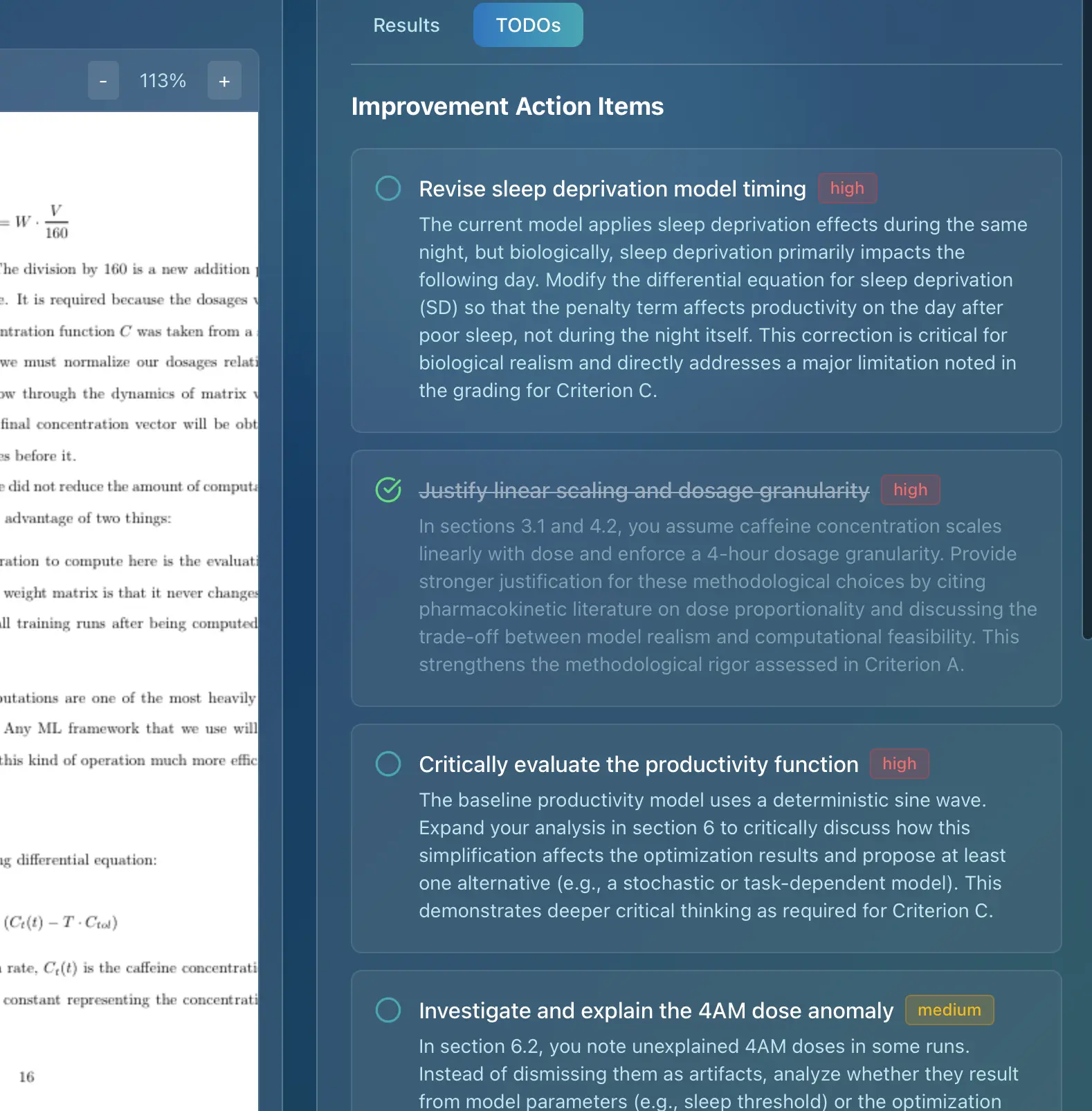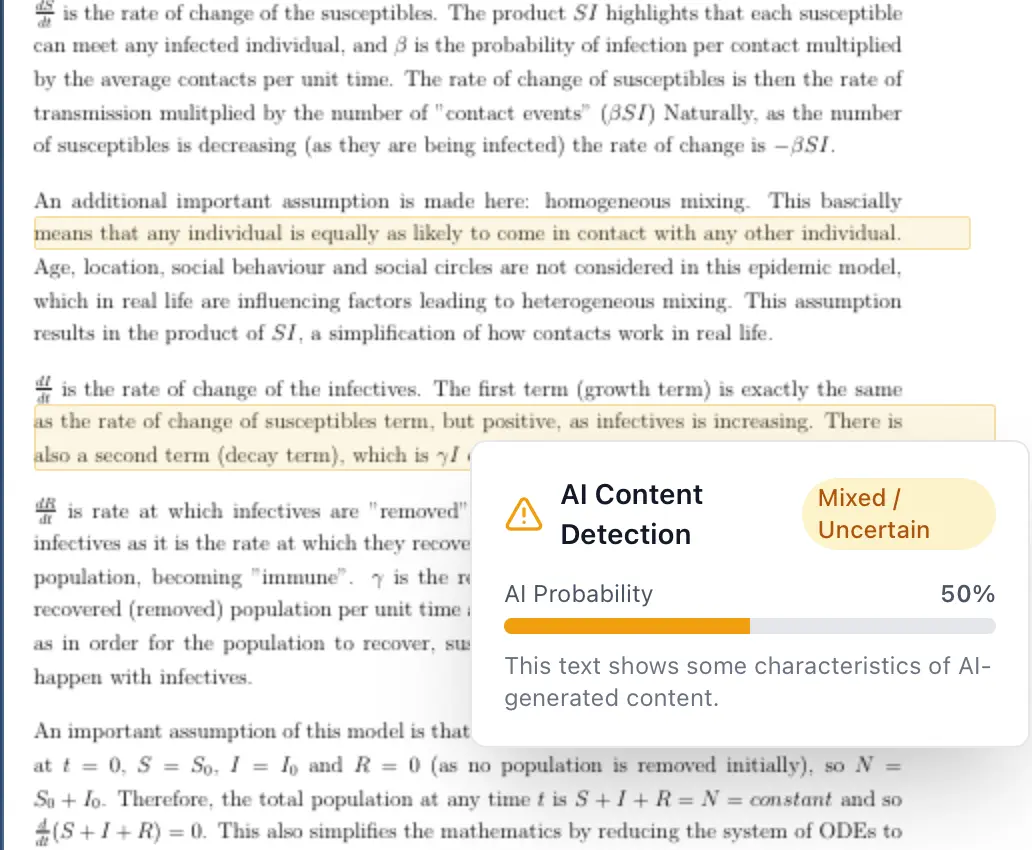Structuring Your IB World Religions IA for Success
Are you an IB student feeling overwhelmed by the prospect of your World Religions Internal Assessment (IA)? You're not alone! This investigative study requires careful planning and execution to achieve a high score. This guide will break down the IA structure, providing you with a clear roadmap to success. We'll cover everything from choosing a compelling research question to crafting a strong conclusion, ensuring you understand exactly what the IB examiners are looking for. By following our expert advice, you'll be well on your way to maximizing your marks and achieving your desired grade in IB World Religions.
Introduction: Mastering the IB World Religions IA
The IB World Religions IA, also known as the "Investigative Study," is a significant component of your final grade. It's your opportunity to delve deeply into a specific aspect of religion, demonstrating your research skills, analytical abilities, and understanding of religious concepts. A well-structured IA not only showcases your knowledge but also makes the grading process easier for your teacher. This guide will provide you with a clear framework for structuring your IA, covering each criterion in detail and offering practical tips to help you excel. We'll also address common pitfalls and offer advanced strategies to elevate your work.
Struggling with IB Assessments?
Get instant, detailed feedback on your work with AI that understands IB criteria.

Core Content Sections: Building a Solid IA Structure
The IB World Religions IA is assessed based on five key criteria: Rationale and preliminary research (A), Plan for study (B), Summary of significant findings (C), Critical reflection and evaluation (D), and References and compliance with format (E). Let's break down each of these criteria and explore how to structure your IA to meet the requirements.
Criterion A: Rationale and Preliminary Research (0-8 marks)
This section is all about setting the stage for your investigation. You need to clearly articulate why your chosen topic is significant and demonstrate that you've conducted thorough preliminary research.
- Developing a Compelling Rationale: Your rationale should explain the importance of your chosen topic within the broader context of religious studies. Why is this particular aspect of religion worth investigating? What makes it interesting or relevant? Consider the social, cultural, or historical implications of your topic.
- Example: If you're investigating the role of women in a specific religious tradition, your rationale could highlight the ongoing debates about gender equality within that tradition and the impact of these debates on contemporary society.
- Conducting Thorough Preliminary Research: This involves exploring a wide range of sources to gain a solid understanding of your topic. Don't just rely on a few websites. Consult academic journals, books, documentaries, and primary sources (if available).
- Tip: Use keywords related to your topic to search academic databases like JSTOR or Google Scholar.
- Demonstrating the Range of Your Research: Aim for a diverse range of sources, including different perspectives and viewpoints. This shows that you've considered the topic from multiple angles.
- Example: If you're researching the concept of pilgrimage in Islam, include sources that discuss the historical significance of the Hajj, the spiritual experiences of pilgrims, and the economic impact of the pilgrimage on Mecca.
- Achieving a High Score (7-8 marks): To achieve top marks, your rationale must be clearly stated and very well developed, supported by thorough and wide-ranging research and excellent supporting evidence.
Criterion B: Plan for Study (0-3 marks)
This section focuses on the how of your investigation. You need to outline your research plan and formulate a clear research question.
- Defining the Scope of Your Study: Be realistic about what you can achieve within the word limit. Narrow down your topic to a manageable scope.
- Example: Instead of trying to cover the entire history of Buddhism, focus on a specific school of Buddhism or a particular aspect of Buddhist practice.
- Formulating a Focused Research Question: Your research question should be clear, concise, and directly related to your chosen topic. It should guide your investigation and provide a framework for your analysis.
- Example: "To what extent has the concept of karma influenced ethical decision-making in contemporary Buddhist communities in the West?"
- Aligning Your Plan with Your Research Question: Your research plan should outline the steps you'll take to answer your research question. This might include conducting interviews, analyzing texts, or visiting religious sites.
- Achieving a High Score (3 marks): To achieve top marks, your scope/plan must be clearly focused and appropriate, and your research question must be clearly defined and closely aligned to your plan.
Criterion C: Summary of Significant Findings (0-6 marks)
This section is where you present the key findings of your research. It's not enough to simply summarize your sources; you need to identify the most significant information and explain how it relates to your research question, rationale, and plan.
- Identifying Key Findings: What are the most important insights you've gained from your research? What patterns or trends have you observed?
- Connecting Findings to Your Research Question: Explain how your findings help to answer your research question. Do they support your initial hypotheses, or do they challenge them?
- Relating Findings to Your Rationale and Plan: Show how your findings connect back to your original rationale and research plan. Did your research confirm the importance of your chosen topic? Did your plan prove to be effective?
- Achieving a High Score (5-6 marks): To achieve top marks, your significant findings must be clearly stated and well-developed, and the connection between findings and the research question, rationale, and plan must be fully demonstrated.
Criterion D: Critical Reflection and Evaluation (0-10 marks)
This is arguably the most important section of your IA. It's where you demonstrate your critical thinking skills and your ability to analyze your findings in a nuanced and insightful way.
- Reflecting on Your Findings: What are the implications of your findings? How do they contribute to our understanding of religion?
- Understanding Religious Context: Demonstrate your understanding of the religious context in which your topic is situated. Avoid making generalizations or stereotypes.
- Evaluating Your Methods: Critically evaluate the strengths and weaknesses of your research methods. What limitations did you encounter? What could you have done differently?
- Identifying Misconceptions: Discuss any misconceptions or biases that you may have encountered during your research. How did you address these misconceptions?
- Suggesting Conclusions and Future Possibilities: Based on your findings, what conclusions can you draw? What are the implications for future research?
- Achieving a High Score (9-10 marks): To achieve top marks, you need to demonstrate detailed, sophisticated reflection, an excellent understanding of context, a thorough evaluation of how your question shaped your findings, a full evaluation of underlying assumptions/biases and methods, and thoughtful consideration of conclusions and future work.
Criterion E: References and Compliance with Format (0-3 marks)
This section is about ensuring that your IA meets the formal requirements of the IB.
- Adhering to the Word Limit: The IA has a word limit of 1,800 words. Exceeding this limit will result in a penalty.
- Using Correct Reference Format: Follow the IB's guidelines for referencing sources. This typically involves using a consistent citation style (e.g., MLA, APA, Chicago).
- Structuring Your IA: Ensure that your IA is well-organized and easy to read. Use clear headings and subheadings to guide the reader through your analysis.
- Achieving a High Score (3 marks): To achieve top marks, your IA must be within the word limit and meet all formal requirements (references format and structure).
Common Challenges/Mistakes
Students often struggle with the following aspects of the World Religions IA:
- Choosing a Topic That is Too Broad: This makes it difficult to conduct in-depth research and analysis.
- Solution: Narrow down your topic to a manageable scope.
- Failing to Formulate a Clear Research Question: This leads to unfocused research and analysis.
- Solution: Spend time crafting a clear, concise, and focused research question.
- Simply Summarizing Sources Instead of Analyzing Them: This demonstrates a lack of critical thinking skills.
- Solution: Go beyond summarizing your sources and analyze their arguments, evidence, and perspectives.
- Neglecting to Evaluate Their Methods: This shows a lack of self-awareness and critical reflection.
- Solution: Critically evaluate the strengths and weaknesses of your research methods.
- Ignoring the Formal Requirements: This can result in a significant penalty.
- Solution: Carefully review the IB's guidelines for formatting and referencing.
Pro Tip: Get AI-Powered Grading
Stop second-guessing your grades. Get instant feedback aligned with official IB rubrics.

Advanced Tips/Strategies
- Consult with Your Teacher: Your teacher is your best resource for guidance and support. Don't hesitate to ask for feedback on your topic, research question, and draft.
- Read Exemplar IAs: Studying exemplar IAs can give you a better understanding of what the examiners are looking for.
- Seek Feedback from Peers: Ask your classmates to read your IA and provide constructive criticism.
- Revise and Edit Carefully: Proofread your IA carefully for errors in grammar, spelling, and punctuation.
Technology and Modern Assessment
Technology is playing an increasingly important role in IB assessment. AI-powered tools are helping teachers to provide more consistent, detailed, and timely feedback to students.
Marksy is a leading AI grading assistant specifically designed for the International Baccalaureate. It uses official IB rubrics to provide instant, accurate, and detailed feedback on student work, including the World Religions IA. Marksy's rubric-aligned scoring and criterion-by-criterion feedback help students understand exactly how to improve their work. For teachers, Marksy significantly reduces grading time while maintaining assessment quality and consistency. By leveraging AI, educators can focus more on personalized instruction and student support, leading to better learning outcomes. Marksy helps ensure fairness and accuracy in grading by applying the official IB criteria consistently across all student submissions.
Conclusion with Clear Next Steps
Structuring your IB World Religions IA effectively is crucial for achieving a high score. By following the guidelines outlined in this guide, you can develop a well-organized, insightful, and compelling investigative study that showcases your knowledge and skills. Remember to choose a manageable topic, formulate a clear research question, conduct thorough research, analyze your findings critically, and adhere to the formal requirements of the IB.
Next Steps:
- Choose Your Topic: Brainstorm potential topics that genuinely interest you and align with your strengths.
- Develop Your Research Question: Craft a focused and researchable question that will guide your investigation.
- Create an Outline: Structure your IA based on the criteria discussed in this guide.
- Start Researching: Gather relevant sources and take detailed notes.
- Write a Draft: Don't worry about perfection at this stage; just get your ideas down on paper.
- Revise and Edit: Refine your arguments, improve your writing, and ensure that your IA meets all the requirements.
- Get Feedback: Ask your teacher and peers for constructive criticism.
Ready to take your IB World Religions IA to the next level? Try Marksy for free today and experience the power of AI-driven feedback! See how Marksy can help you understand exactly what you need to do to improve your score and achieve your academic goals. Teachers, streamline your grading workflow and provide consistent, detailed feedback with Marksy. Sign up for a free trial now!